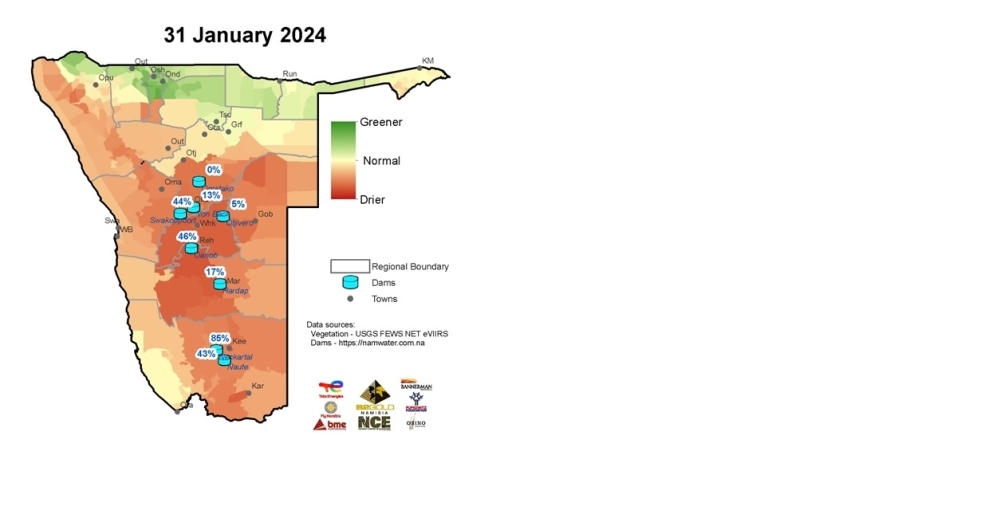
Plant productivity in large parts of Namibia is currently drier than normal and drought preparedness is advised in these areas.
Exceptions are the north, northwest and northeast, as well as isolated parts elsewhere, where plant productivity is currently above-average.
This according to ecologist Cornelis van der Waal’s rangeland status report for the end of January, which said, overall, rangelands in Namibia tend to be drier than normal, except for a strip in far northern, northwestern and northeastern parts, which are greener than normal.
Areas where above-average conditions are currently experienced include the northeastern parts of Kunene, the northern parts of Omusati, Oshana and Otjikoto as well as the Ohangwena, Kavango West and East regions, he said.
“In the Otjozondjupa Region, the north-central parts range from average to above-average growth conditions.”
Van der Waal noted that Zambezi tends to be normal to below-normal.
“The driest areas include Khomas and Omhaheke, eastern parts of Erongo, western parts of Kunene, central parts of Hardap, large parts of //Karas and southern parts of Otjozondjupa,” he said.
Van der Waal explained that livestock production in Namibia is almost entirely dependent on the productivity of its rangelands, which may plummet to near zero during severe droughts.
Rainfall variability results in severe management challenges for livestock farmers who need to balance animal forage requirements with the forage produced, as well as prevent land degradation, he explained.
“This information can reveal which parts of the country are likely to be most affected by drought towards the end of the dry season, which allows sufficient time to plan drought relief efforts.”
[Source – Republikein]
